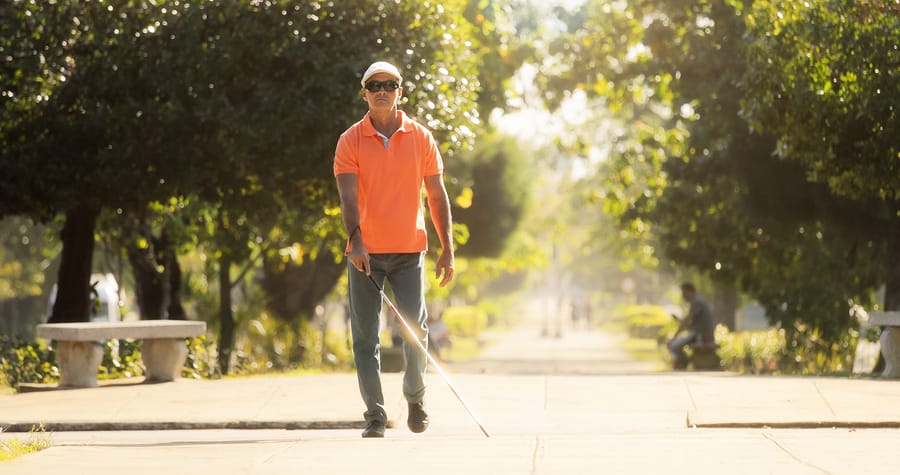 Will you dare to pray the Bartimaeus prayer?
Will you dare to pray the Bartimaeus prayer?
He is a lonely figure, Bartimaeus, sitting there by the roadside. Sitting there as life passes him by. Not even a bystander, but a by-sitter in the drama of life. Locked there because he can’t see. Locked there because of what life had done to him. Blindness was a common ailment in the times of Jesus – because of lack of hygiene, minor infections would result in blindness. We don’t know if he was born blind, or became blind. We just know that Bartimaeus is one of the victims, now abandoned by the world that passes him by.
And yet, Bartimaeus does three bold, amazingly courageous things in today’s gospel.
The first is that he calls out to Jesus. Crowds can be cruel, he knew by experience. The blows or the kicks could come from any direction. He’d never see them coming. Yet, with hope in his heart, he cries out: “Son of David, have pity on me…” And when they want to quiet him he cries out all the louder. That is his first bold move.
His second is when he is called. We are told that he tosses aside his cloak when the master calls. His cloak is his livelihood to collect the tossed coins; his protection from the night’s cold and sun’s heat; a shield from the dogs and rats. As a blind man in a crowd, he’ll never see it again. He is all in for this encounter now as he boldly tosses it away. But that is not his most courageous move.
There before the master, when given that solitary chance to ask God himself for what he wants – then we see either his courage or his foolishness. “Master, I want to see…” I want to see…
Think about that request. I want to see! What will he see? Many beautiful things, to be sure: the faces of family, loved ones. The sunset, the flowers, all that he has heard about, he’ll see or see again.
He’ll also see the faces of those who spit on him and mocked him and cursed him…the faces of cruelty and oppression. The faces of the soldiers and the enemies and those who harmed others.
Knowing that in being able to see the light, he would also have to see the darkness, he still asks to see. And when he can, when his sight is restored, he is able to see the road that Jesus is on – the nature of discipleship, the cost of his sight – and he follows Jesus ‘έή τε hοδος’ – on the way – which is shorthand in Mark’s gospel for becoming a disciple. He moves from ‘sitting by the roadside’ to following ‘on the way…’ because what he has seen had demanded that he become a disciple.
You and I are called to see this world with great clarity. To look it square in the eyes. We can’t expect to see its beauty and glory without also becoming aware of its tragedy and pain. When our eyes are open, how can we go as if nothing is different? “Master, I want to see”, becomes the cry of the true disciple. Lord, I want to see the faces of the poor in that migrant caravan, even though they haunt me at night. Lord, I want to see the parishioner whom people shun because they are a little socially awkward. Lord, I want to see the injustice that is perpetrated around the globe in the name of ‘National Interest’ –when it is all about protecting our way of life to the exclusion of our brothers and sisters. Lord I want to see that.
And even closer to home, Lord, I want to see how dearly you love me. I want to trust that you are that high priest that Hebrews spoke of – offering for my sin your very life. Lord, I want to see that you have brought me back from my exile. Lord, I want to see how you console me and set my feet on the road. Lord, I want to see you, always in everything… Always, in everything.
Until we are able to pray that prayer, then we remain, like Bartimaeus before the cure, sitting on the road, sitting on the way, when we should be following Jesus. Of the courageous things that Bartimaeus did, none was greater than his prayer – Master, I want to see. Will you dare to pray the Bartimaeus prayer?
